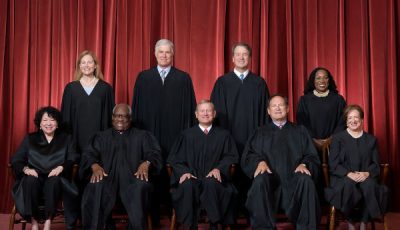Supreme Court Declines to Hear Ventura v. Motherless DMCA Dispute
 WASHINGTON – As part of its order list issued Monday, the U.S. Supreme Court denied Ventura Content Ltd’s petition to hear Ventura Content, Ltd. V. Motherless, Inc., leaving in place the Ninth Circuit Court of Appeals decision which upheld the trial court’s summary judgment dismissing the case.
WASHINGTON – As part of its order list issued Monday, the U.S. Supreme Court denied Ventura Content Ltd’s petition to hear Ventura Content, Ltd. V. Motherless, Inc., leaving in place the Ninth Circuit Court of Appeals decision which upheld the trial court’s summary judgment dismissing the case.
In its petition, Ventura argued certiorari was warranted in the case because “the lower courts are in a state of DMCA disarray.”
“At the heart of this disarray exists a new technology business that emerged after 1998, the ‘tube’ site publishing model (akin to YouTube) that the Defendants here operate, one that reproduces and publicly publishes content uploaded by users, including myriad adult content films of Plaintiff-Petitioner Ventura Content,” Ventura wrote in the petition. “The dissent and majority below amply demonstrate the collision on the law, which exists across the nation.”
Ventura asserted that business like Motherless, “which make all their revenue from offering others’ content to viewers, have shoehorned themselves into the DMCA in a manner that has now made online copyright law and offline copyright law exist on two different wavelengths.”
“The result of the DMCA disarray is that abject bootlegging in the offline, brick-and-mortar world remains unlawful, but the same conduct online by an OSP-turned- publisher garners absolute summary judgment immunity,” Ventura added in its petition. “This case demonstrates a brazen business model that makes Grokster’s conduct, brutally condemned by this Court… look decidedly trite.”
While Ventura decried what it termed a “’I Know It When I See It’-type policy” Motherless had in place with respect to terminating repeat infringers among its uploaders, but neither the trial court nor the Ninth Circuit majority took issue with Motherless’ approach to terminating repeat offenders.
“The details of the termination policy are not written down,” Judge Andrew J. Kleinfeld wrote in the Ninth Circuit’s decision issued in March. “However, the statute does not say that the policy details must be written, just that the site must inform subscribers of ‘a policy’ of terminating repeat infringers in appropriate circumstances…. So the lack of a detailed written policy is not by itself fatal to safe harbor eligibility. Neither is the fact that Motherless did not publicize its internal criteria.”
The lone dissenting judge in the Ninth Circuit’s hearing of the case, Judge Johnnie B. Rawlinson, questioned whether Motherless’ approach to terminating repeat offenders could reasonably be called a “policy.”
“Further supporting the existence of a material issue of fact regarding the establishment of a policy is the failure of (Motherless owner Joshua Lange) to articulate a consistent approach to the termination of repeat infringers,” Rawlinson wrote in his dissent, noting that Lange gave several different and conflicting accounts of how he implements the policy, including at one point describing “an ‘automated system for removing people’ that he later acknowledged did not actually exist.”
“Who can say with a straight face that a ‘gut decision making process’ constitutes a policy?” Rawlinson wrote. “I certainly can’t.”
With the denial of Ventura’s petition, it appears that such “gut decision-making” processes will go unexamined by the Supreme Court – unless SCOTUS should happen to hear a case centered on similar issues in the future.













